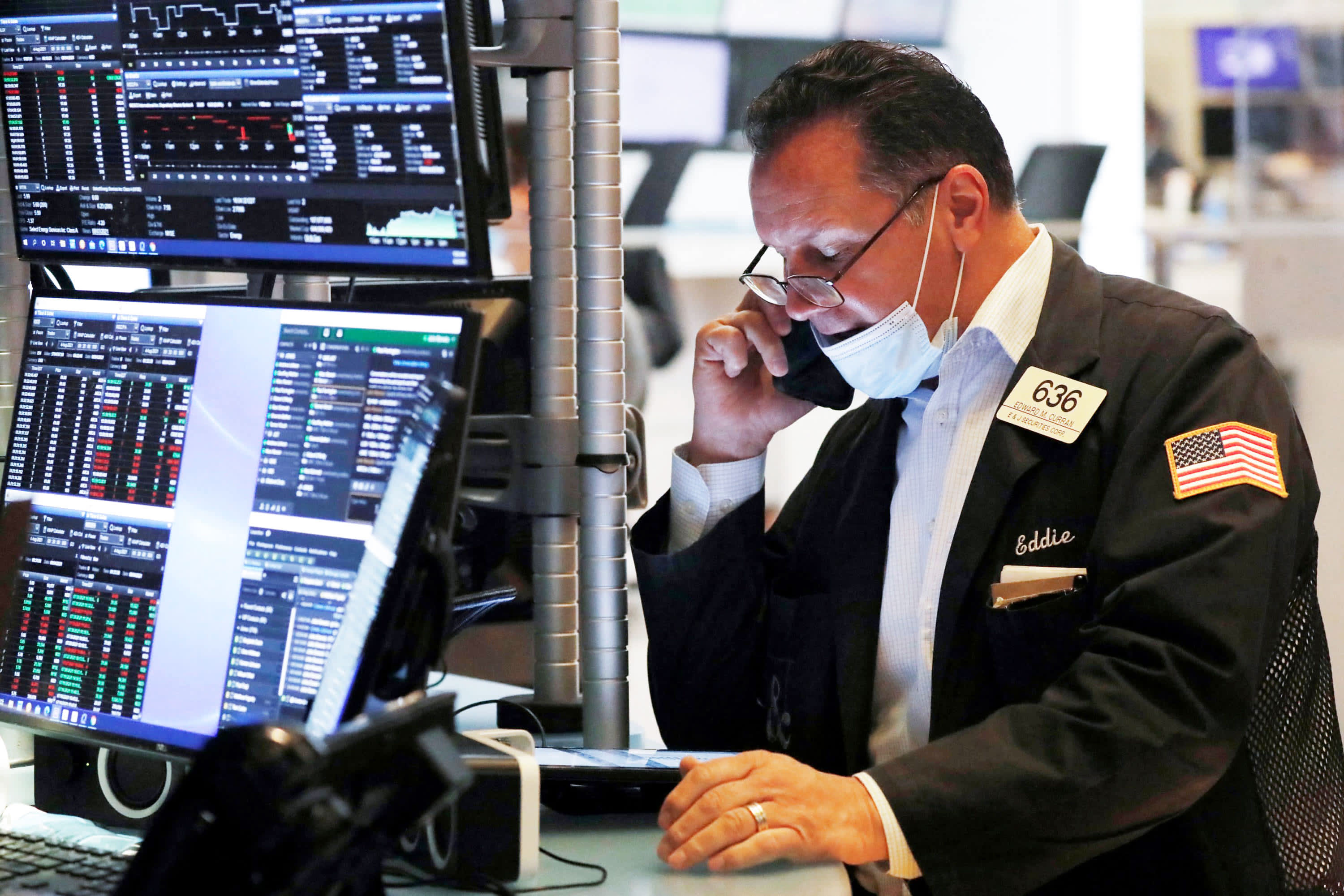
U.S. stock indexes fell Tuesday as July retail sales declined and concerns about slowing global economic growth intensified.
The Dow Jones Industrial Average fell 282.12 points, or 0.8% to 35,343.28. The S&P 500 shed 0.7% to 4,448.08 and the Nasdaq Composite lost 0.9% to 14,656.18.
The Dow and the S&P 500 each snapped 5-day winning streaks. Tuesday’s losses came after the two indexes closed at record highs in the prior session.
Retail sales declined 1.1% in July, a steeper drop than the 0.3% dip expected by economists surveyed by Dow Jones and a reversal from June’s 0.7% increase.
“When we’re looking at the expectations for consumer strength going forward, some of the edge is being taken off by the rise in the delta variant,” BMO Wealth Management’s Yung-Yu Ma said. “These challenges aren’t going to go away quickly.”
Home Depot fell more than 4% after reporting second-quarter results, weighing on the Dow. While quarterly earnings topped estimates, same-store sales rose 4.5% in the period, below the 5% consensus estimate of analysts polled by StreetAccount. U.S. same store sales increased by just 3.4%.
Walmart shares were flat after second-quarter earnings topped estimates. The retailer gained ground in groceries and reported a strong start to the back-to-school season.
Disappointing economic data from China on Monday intensified concerns about a slowdown in global growth. Chip stocks tumbled for a second day on Tuesday with the iShares Semiconductor ETF down roughly 2% and Nvidia 2.5% lower. Shares of Tesla and Boeing, both also heavily reliant on China as a growth market, declined.
Meanwhile, technology names trended lower. Big Tech shares, including Google-parent Alphabet, Amazon, Apple and Facebook, traded in the red.
Elsewhere, health care shares saw strength with the S&P 500 Health Care Sector hitting a record at one point. United Health, Merck and Johnson & Johnson all traded in the green.
On Monday, the S&P 500 reached a milestone as the benchmark index doubled from its pandemic closing low on March 23, 2020. That marks the fastest bull-market doubling since World War II, according to calculations from CNBC.
Become a smarter investor with CNBC Pro.
Get stock picks, analyst calls, exclusive interviews and access to CNBC TV.
Sign up to start a free trial today




